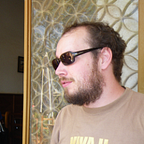The Central African Republic Wakes Up From a Long Nightmare
But the conflict isn’t over
by PETER DÖRRIE
An upcoming national forum offers tenuous hope for peace in the Central Africa Republic, but an on-going conflict and confusing diplomatic moves from neighboring African nations complicate a slow and painful journey toward recovery and reconciliation.
“There is no war in the Central African Republic,” Thierry Vircoulon, the Crisis Group’s Central Africa Project Coordinator, told War Is Boring. His assessment is optimistic compared to just a year ago, when widespread sectarian and political violence led to thousands of deaths.
But the absence of war is not the same as peace — a distinction that Vircoulon was quick to make. “We see the disintegration of the state, a low intensity conflict,” he said.
This conflict dates back to late 2012 when a coalition of rebel groups called Séléka ousted then-Pres. François Bozizé from office. Of course, a civil war didn’t appear out of thin air. The Central African Republic has frequently faced crisis and conflict since its independence from France in 1960.
The Séléka captured the capital Bangui on March 24, 2013, despite reinforcement of Bozizé’s troops by South African soldiers. The rebels installed their leader Michel Djotodia into the presidency — the first Muslim to rule the largely Christian country — and then went on a looting spree.
The Séléka’s behavior quickly turned public opinion against Djotodia. In Bangui and elsewhere, local self-defense militias called the anti-balaka launched an insurgency against the insurgents that increasingly blurred the lines between combatants and civilians.
The result was the ethnic-religious cleansing of large swathes of the country. Thousands of people died. Hundreds of thousands more fled for their lives.
Violence spiraled out of control even with the presence of an African peacekeeping force. France also deployed a 2,000-man contingent in December 2013. Meanwhile, the United Nations folded the African Union force into a larger U.N. peacekeeping mission.
Djotodia resigned in January 2014, the Séléka split into several factions and the nation installed an interim government under Pres. Catherine Samba-Panza, a Christian and the Central African Republic’s first female head of state.
Over time, international forces brought a semblance of order to the capital, even though large areas of Bangui and much of the rest of the country remain under the effective control of armed groups.
Today, the CAR is on a slow and painful road toward recovery.
“There has been some progress,” Vircoulon said. “The international forces have pushed back the former Séléka fighters from several towns. In the western Central African Republic, the anti-balaka are not fighting any more, because they have no enemies.”
That’s to say — the Muslims in the west have fled. A fledgling peace process is underway. Earlier this year, the interim government conducted a series of local consultations in all six prefectures of the country.
The results of these consultations, which the U.N. described as “historic,” will influence an upcoming national forum in Bangui in April.
The international community wants the Bangui forum to recommend a framework for a new constitution, which could form the basis of credible elections and a legitimate government.
France is pushing hard for everyone to follow this road map to peace. In recent years, France overextended itself financially with several large military interventions in its former African colonies.
The French government officially wants elections in CAR this year, although Vircoulon thinks that this is “not realistic and France knows this very well.”
While Vircoulon described the local consultation process as “successful,” he expressed more ambivalence regarding the Bangui forum.
The forum still has no official agenda and conflicts over its organization derailed the preparation process. With only one week scheduled for sessions, the event could be too brief to allow for a meaningful national dialogue.
Vircoulon said he hoped that all interested parties can overcome these shortcomings. He said if they can reach an agreement, the Bangui forum could play an important role in the peace process.
As for elections, Vircoulon said that these could take place in 2016 at the earliest. Of course, he based his optimism on the hope that there will be no major crisis in the meantime.
Critically, the U.N. recently increased its troop mandate — which could help keep the country from spiraling back into another cycle of murder. But Paris is scaling back its military commitment, removing 300 French troops since the beginning of March.
Kenya, an important political player in the region, sent some curious signals last week when the government announced that it had sponsored a peace deal between various anti-balaka groups, a Séléka splinter group let by former Pres. Djotodia and his predecessor François Bozizé.
Kenya did not consult with the CAR’s interim government, nor did it consult the international community. Diplomatic tempers flared as a result.
Congo Pres. Denis Sassou Nguesso initiated the the surprise peace deal, Vircoulon said, but has since disowned it. “My understanding is that the Kenyan president continued mainly to save face and because these negotiations were part of his personal PR strategy, ” he said.
Kenyan Pres. Uhuru Kenyatta is widely criticized for his alleged role in Kenya’s 2008 electoral violence. He routinely looks for ways to rebuild his credibility.
The deal had the potential to derail parts of the peace process in the Central African Republic because it includes long-time spoilers such as Bozizé and Djotodia. But luckily, says Vircoulon, “as the process was de-legitimized it did not have a large impact in the Central African Republic.”
This leaves the Central African Republic’s peace process broadly on track, but with many difficult questions ahead.
